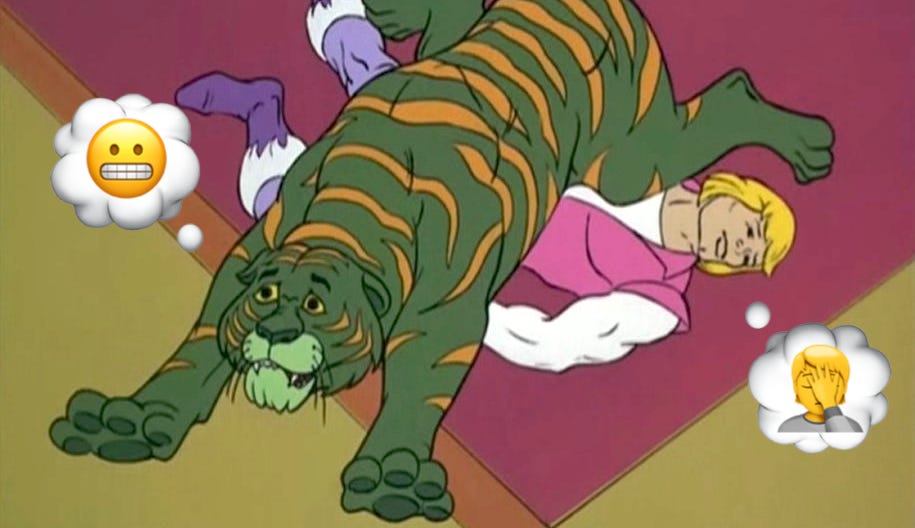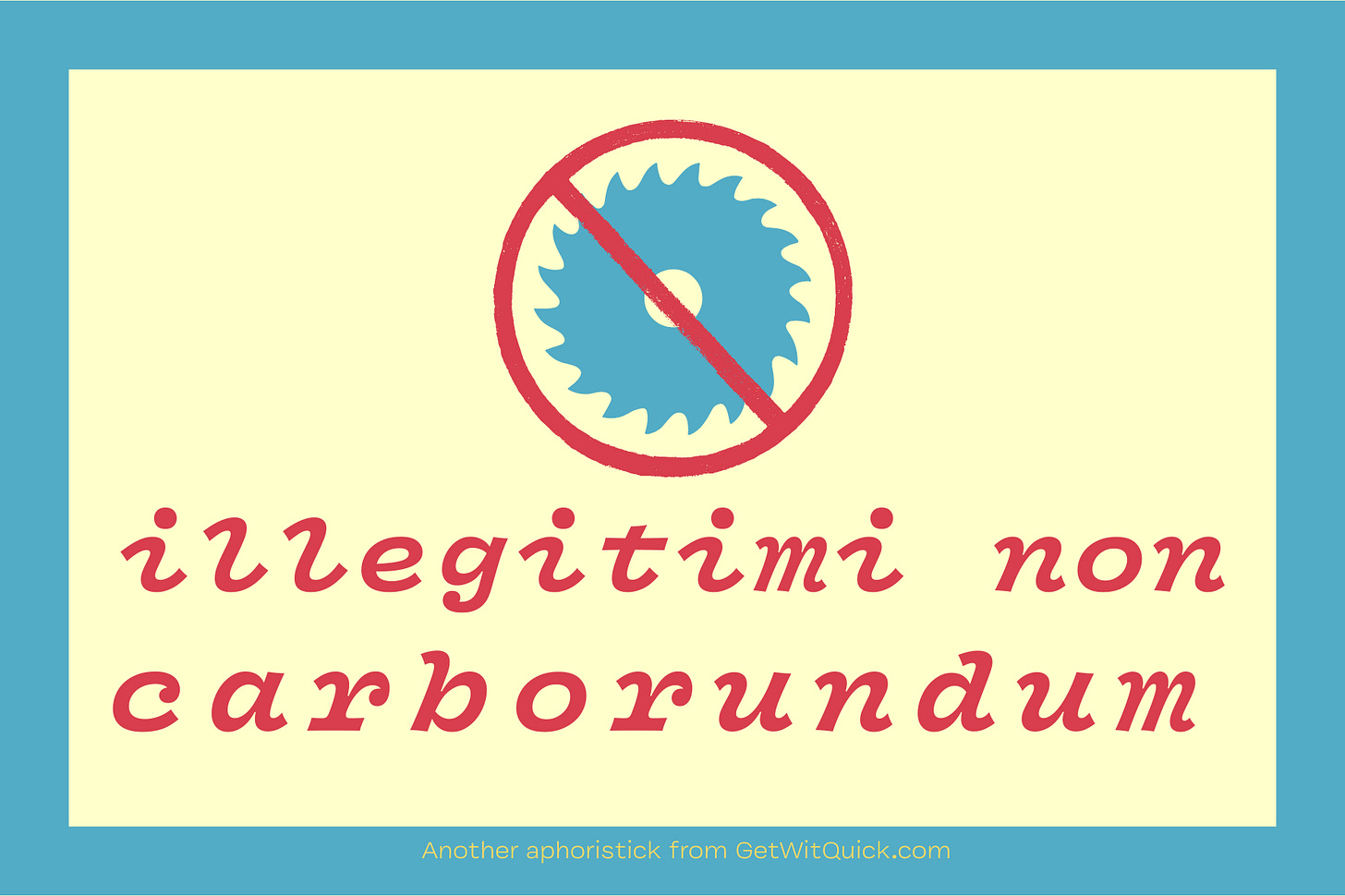The Wit’s Guide to Cringe
Or, outsourced shame
Just as we’ve farmed out our grocery shopping, navigation, email writing, and childcare, so too have we shifted the burden of embarrassment onto innocent bystanders. We call this outsourced shame cringe. Let others flinch in disgust while we’re exuding main character energy in pursuit of our best lives! What’s that? These pants are too tight? Sorry not sorry, I can’t hear you because I’m living out LOUD!
“My characters cringe when I come near them.”
— Vladimir Nabokov
And the reason cringe spreads like lice in kindergarten is that it’s one of the surest ways to get people to share content. Or as marketing professors explain, “the act of sharing cringeworthy experiences gives consumers an opportunity for self-enhancement by engaging in a favorable downward social comparison to the actor committing the social transgression that elicited cringe.” They go on to argue that the infamous Pepsi ad featuring Kendall Jenner solving social unrest with soda pop was good, actually.
“I once wore a peekaboo blouse. People would peek—then they’d boo.”
— Phyllis Diller
Here we have to give The Office credit/blame for making cringe comedy palatable to the masses. And not just palatable but soothing: In Comedy Book, Jesse David Fox quotes the great Billie Eilish as saying “When I wake up, I put on The Office. If I’m making a burrito, I turn on The Office.” Though the long-running sitcom is full of cringey moments thanks to Michael Scott (David Brent for the early adopters), they’re almost always leavened by Jim (Tim) giving a knowing look to the camera. He’s sharing the cringe with us, the viewers of the fictional documentary. And at times, his mugging is cringier than the inciting social transgression!
“If we are not regularly deeply embarrassed by who we are, the journey to self-knowledge hasn’t begun.”
— Alain de Botton
For me to write about cringe at this late date is itself cringe. But which subvariety? Haley Nahman helpfully produced a cringe matrix earlier this year, by which I can label my cringe wholesome (sincere, aware). If you’re (sincere, delusional), that’s clueless cringe, e.g., this hair dye makes me look 10 years younger. To be (insincere, aware) is malevolent cringe, which is all of Instagram. And (insincere, delusional) is trainwreck cringe, which is reality television.
“What’s reality if not a long exhaustive cringe from the blade.”
— Dorianne Laux
Looking back at the last 25 years, the transition from reality television (famous people making you cringe) to social media (normal people making each other cringe) to modern politics (famous people making us cringe at each other) is just one giant rubberneck at an ongoing train wreck.
“Every decent man is ashamed of the government he lives under.”
— H. L. Mencken.
I cringed a bit when a longtime reader recently told me she was “not relating to the content (& many of the references) anymore.” Cringe, at least, has always been a common word, even if it’s been nounified. So let me pull out a classic in the form of Dr Seuss, who once told a fan not to shy away from looking back at his juvenalia. “Keep cringing away!” the non-physician exhorted. “The more you cringe over your old stuff, the more that means you’re going ahead!” But to insource cringe is just to feel shame, which is what the word meant when Seuss wrote that back in the 1950s.
“Man is the only animal that blushes—or needs to.”
— Mark Twain
I used to think we needed to rediscover shame. In this economy, though, that’s impossible; too many people have made too much money being shameless. Better to retire cringe — which originally meant “to bend, to give in” — and adopt wince — “to recoil, to avoid.” A wince is a brisk, honest refusal: feel the pang, correct the course, and keep going. Cringe benefits are fringe benefits; rather, wince and repeat.
“How embarrassing to be human.”
— Kurt Vonnegut
“We publicize our small faults in order to imply that we have no great ones.”
— François de La Rochefoucauld
I promised charter subscriber Sarah Murdoch that we’d do slop this week, but then democracy happened. And it’ll probably happen again! But I have lots to say about feeding pigs and/or algorithms!
I’ve now ordered my first six Aphoristick stickers and will be mailing them out this month to paid subscribers. Here’s the November edition! Get on board!
Issue No. 343 of Get Wit Quick will make you coil, then recoil. This newsletter’s mascot is a magpie named Magnus after the magician in Robertson Davies’ Deptford Trilogy. The title font is Vulf Sans, the official typeface of the band Vulfpeck. The book was Elements of Wit: Mastering The Art of Being Interesting. If anyone noticed that you didn’t tap the ❤️ below, they’d for sure engage in a favourable downward social comparison.








Had a busy day, so didn't get to this until late, but it was nice to have an evening, versus a morning chuckle. Thanks.
Dear Benjamin,
Great piece as always! Love these:
“If we are not regularly deeply embarrassed by who we are, the journey to self-knowledge hasn’t begun.”
— Alain de Botton
“Man is the only animal that blushes—or needs to.”
— Mark Twain
“How embarrassing to be human.”
— Kurt Vonnegut
Thanks for sharing!
Love
Myq